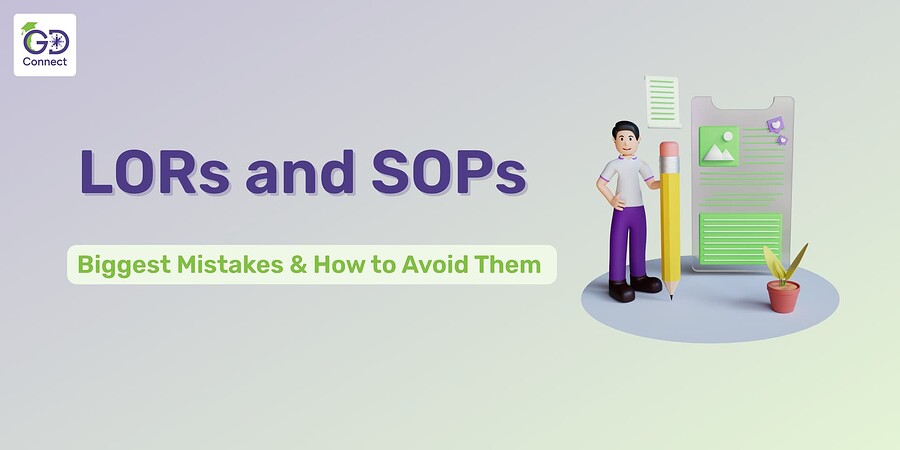Indian students aiming to study abroad often underestimate the importance of their Letters of Recommendation (LORs) and Statement of Purpose (SOP). These aren’t just formalities; they’re powerful tools that can make or break your application. But sadly, many students make avoidable mistakes. Let’s dive into the most common ones and how you can steer clear of them.
1. Generic SOPs That Say Nothing New
Admissions officers read thousands of SOPs. If yours starts with “I have always been passionate about engineering…” it’s already forgotten. Be original. Tell your unique story, why you, why this course, why now.
2. Copy-Pasting from the Internet
It’s tempting to pull examples online, but plagiarism is a red flag. Universities often use plagiarism checkers. Write in your voice, even if it’s not perfect. Authenticity always wins.
3. LORs Written by Students Themselves
Many students write their own recommendation letters and get them signed by professors. Trust us, admissions committees can tell. It sounds unnatural and flat. Choose recommenders who know your work and can offer genuine praise.
4. Lack of Alignment with Application Goals
Your SOP and LORs should complement each other. If your SOP emphasizes a career in AI, but your LOR focuses on a design project, there’s a mismatch. Make sure your narrative is consistent.
5. Ignoring Formatting and Guidelines
Every university has its own guidelines. Word limits, font size, and number of LORs all matter. Not following them shows carelessness. Always read and follow instructions carefully.
Conclusion
Your SOP and LORs are not just paperwork; they’re your voice in the admission room. Avoid these common missteps by being honest, thoughtful, and detail-oriented. Start early, get feedback, and revise multiple times.
